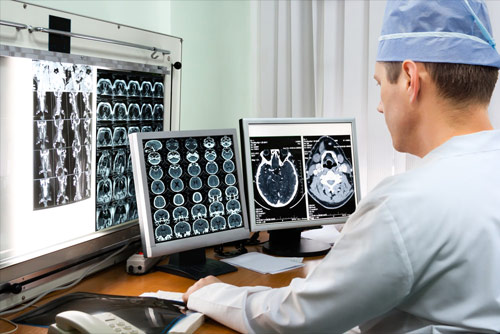Transcranial Doppler ultrasound is a non-invasive form of testing and examining blood circulation in the brain. The ultrasound images obtained from the test aid the diagnosis of a wide range of conditions that can affect blood flow within the brain or to the brain. Continual studies have shown that ultrasound usage is not hazardous because there is no use of radiation. No harmful side effects have been experienced by patients.

When is Transcranial Doppler Ultrasound Needed?
Transcranial Doppler ultrasound (TCD) is usually used when doctors need to find out underlying causes and conditions such as stroke, raised intracranial pressure, vasospasm in sickle cell disease, head injury and more. TCD ultrasound tests are also put into place during surgical procedures when monitoring blood flow in the brain is pertinent.
The Transcranial Doppler Ultrasound Procedure
A TCD probe is placed over specific areas of the skull, especially areas that lack bone covering. In medical terms, these areas of the skull are called “acoustic windows.” The probe directs the use of ultrasonic beams or “isonation” which bounce off arteries of the brain and report signals that interpret the cerebral vasculature or blood flow within the arteries and vessels of the brain.
Northern Neurology Specialties, Dr. Jill Bressler –Transcranial Doppler Ultrasound Test
At Northern Neurology Specialties, our technicians and physician work closely to ensure your comfort throughout the test. Patient’s should prepare to stay approximately one hour, wash their hair thoroughly the night before and refrain from putting in hair sprays, hair gels or any similar products. To find out more about transcranial Doppler ultrasounds, call us at 1-516-364-4484.
